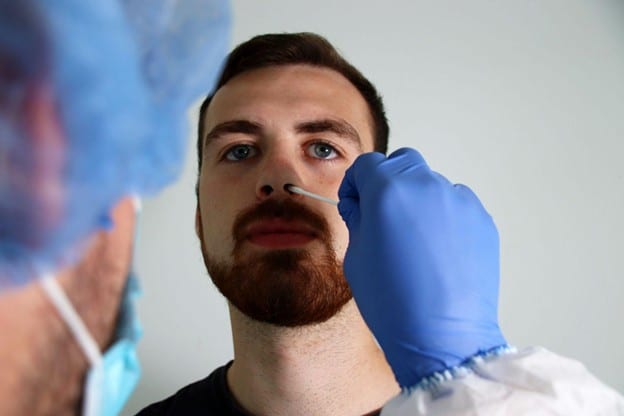What Information Do You Need to Provide to Join Studies? A Participant’s Guide

Participating in a research study can be a meaningful way to contribute to medical or social science advancements—while sometimes earning compensation for study participants. But before you’re enrolled, you’ll need to provide certain personal and medical details, as required to participate in a clinical study.
This article explains exactly what information is required, why researchers need it, and how your data is handled to ensure privacy and safety.
Key Takeaways
- Research studies require personal, medical, and behavioral information to determine your eligibility.
- You may need to submit documents such as a government-issued ID and medical records.
- The informed consent process ensures you understand what participation involves.
- Researchers use your information to protect your safety and match you to suitable studies.
- Your privacy is protected by strict data policies like HIPAA.
Understanding the Basics of Joining a Research Study
Joining a research study involves volunteering to participate in scientific investigations that aim to improve knowledge in fields like medicine, psychology, or public health. These studies can range from surveys and behavioral research to clinical trials that test new treatments, medications, or medical devices. They are typically conducted by universities, hospitals, or research institutions and follow strict ethical guidelines to protect participants.
In fact, the University of Alabama at Birmingham alone enrolled over 6,000 participants in clinical trials in 2022, highlighting the growing public interest in contributing to medical research. Eligibility for each study varies based on criteria such as age, health status, gender, or lifestyle habits. While some studies are open to the general public, others target specific populations.
Key Information You’ll Be Asked to Provide
When you apply to participate in a research study, you’ll be asked to provide a combination of the following:
Personal Details (Name, Age, Contact Info)
Basic identifying information is necessary so researchers can:
- Contact you for scheduling or updates
- Ensure you’re within the required age range
- Keep records organized and accurate
Medical History and Current Health Conditions
You’ll often need to disclose:
- Past diagnoses, treatments, or surgeries
- Medications you’re currently taking
- Allergies and chronic conditions
This helps determine whether you’re medically suited for the study’s protocol.
Lifestyle and Behavioral Information
Researchers may ask about:
- Smoking, alcohol, and drug use
- Diet and exercise habits
- Sleep patterns or mental health status
These factors can affect study outcomes and are important for accurate data collection.
Why Researchers Need This Information
Providing accurate personal and medical details isn’t just a formality—it’s essential for ensuring your safety and the integrity of the research. Here’s why researchers collect this information:
- To match you to the right study: Your medical and personal information helps researchers determine if you meet the study’s inclusion or exclusion criteria.
- To protect your health and safety: Knowing your medical history ensures you’re not exposed to treatments that may conflict with existing conditions or medications.
- To ensure accurate study results: Lifestyle factors like smoking, diet, or sleep can impact outcomes—so researchers need this context for valid data analysis.
- To follow strict trial protocols: Clinical studies, especially in later phases, require well-screened participants to meet FDA standards. For example, Phase 1 trials enroll 20–100 participants, while Phase 3 trials can include 300–3,000.
- To uphold ethical standards: Detailed screening prevents the inclusion of participants who may be at high risk or unable to provide informed consent.
Documents and Proofs You May Need to Submit
Before officially joining a research study, you’ll likely need to provide specific documents to verify your identity, health status, and eligibility to participate in a clinical study. These records help researchers comply with ethical standards and regulatory requirements, ensuring accurate participant screening.
Government-Issued ID and Insurance Information
- Photo Identification: A valid government-issued ID (such as a driver’s license or passport) is typically required to confirm your age and identity.
- Health Insurance Details: While many studies cover all medical expenses, some may request insurance information for administrative purposes.
Medical Reports and Test Results
- Medical Records: Past diagnoses, current medications, and treatment history help assess whether you’re a suitable fit for the study.
- Lab Test Results: Blood work, imaging scans (e.g., X-rays, MRIs), or recent diagnostic tests may be requested depending on the study.
- Vaccination Records: For studies involving infectious diseases or travel, proof of immunization might be necessary.
Providing these documents supports both your safety and the integrity of the study. Maintaining complete and verifiable documentation is essential for ethical and regulatory compliance in clinical trials.
Read more: How to Participate in Research Studies – A Comprehensive Guide
The Informed Consent Process: What You Must Understand
Before participating in any research study, you’ll go through an informed consent process—a legal and ethical requirement designed to protect your rights and safety. This step ensures that you fully understand what the study involves before you agree to take part.
Informed consent is more than just signing a form. It’s a structured conversation between the research team and potential participants that covers:
- The purpose of the study
- What you’ll be asked to do
- Possible risks, side effects, and benefits
- How your information will be used and protected
- Your right to leave the study at any time
You should never feel pressured to participate, and you can ask questions at any stage.
Before giving consent, you’ll receive a detailed explanation—usually both written and verbal—about:
- The study’s goals and duration
- Procedures or treatments involved
- Compensation (if any)
- Contact information for the research team
- Your responsibilities as a participant
According to the U.S. Department of Health & Human Services, all federally funded studies are required to follow strict guidelines for informed consent to ensure that participation is truly voluntary and fully informed.
How to Protect Your Privacy When Sharing Information
Participating in a research study requires sharing personal and medical information. Understanding how your data will be protected is crucial. Reputable studies adhere to strict data protection protocols, such as the Health Insurance Portability and Accountability Act (HIPAA), ensuring your health information is stored securely and accessed only by authorized personnel.
According to a study published in the New England Journal of Medicine, 93% of clinical trial participants support data sharing when privacy protections are in place. This high level of trust underscores the importance of robust privacy measures in research studies.
To ensure your privacy:
- Inquire about data handling: Ask how your information will be stored, who will have access, and how long it will be retained.
- Understand anonymization practices: Confirm whether your data will be de-identified to protect your identity.
- Know your rights: Ensure you can withdraw your data from the study at any point if you choose.
By staying informed and asking the right questions, you can confidently participate in research studies, knowing your privacy is safeguarded.
What Happens After You Provide Your Information?
Once you’ve submitted your personal and medical details, the research team initiates a structured process to determine your eligibility and prepare you for participation. Here’s what typically follows:
- Pre-screening review: Researchers assess your information against the study’s inclusion and exclusion criteria. In a pilot study at the University of Arizona Cancer Center, 2,651 patients were prescreened, and 146 (5.5%) were enrolled in a clinical trial, highlighting the selectivity of this process.
- Follow-up communication: You may be contacted for additional information or clarification regarding sensitive information that needs to be disclosed.
- Formal screening visit: If you pass the initial review, a screening appointment may be scheduled, which could include lab tests, physical exams, or interviews.
- Eligibility decision: The team determines your suitability for the study and informs you of the outcome.
- Enrollment and orientation: If approved, you’ll be officially enrolled and provided with detailed information about the study schedule, procedures, and points of contact.
Whether you’re participating to support scientific progress or looking into paid research studies as a side income opportunity, it’s important to understand what information you’ll need to provide and how the process works from start to finish.
Conclusion
Joining a research study begins with providing accurate and complete personal information, which the research staff will use to collect information for eligibility assessment. This data helps researchers ensure safety, match participants to the right studies, and maintain regulatory standards. If you’re considering participation, understanding what information is required—and how it’s protected—can help you feel confident moving forward.
Always ask questions, read consent forms carefully, and only join studies from trusted institutions. If you’re ready to explore legitimate paid research opportunities and want a simple way to get started, Focus Group Panel connects you with studies across the U.S. that match your profile.
FAQs
Do I need to share my full medical history?
Yes, most studies require a full medical history to assess eligibility and ensure your safety.
Is my personal information kept confidential?
Reputable studies comply with HIPAA and similar regulations, ensuring your data is protected and used only for research purposes.
What if I don’t have all the required documents?
Contact the research team—some documents may be optional, or they may assist you in obtaining them.
Can I withdraw my information later?
Yes, you can withdraw from a study at any time, and your data will typically be removed unless anonymized.
How long does the approval process take?
It varies by study but often takes anywhere from a few days to a couple of weeks after submission of all required materials.





